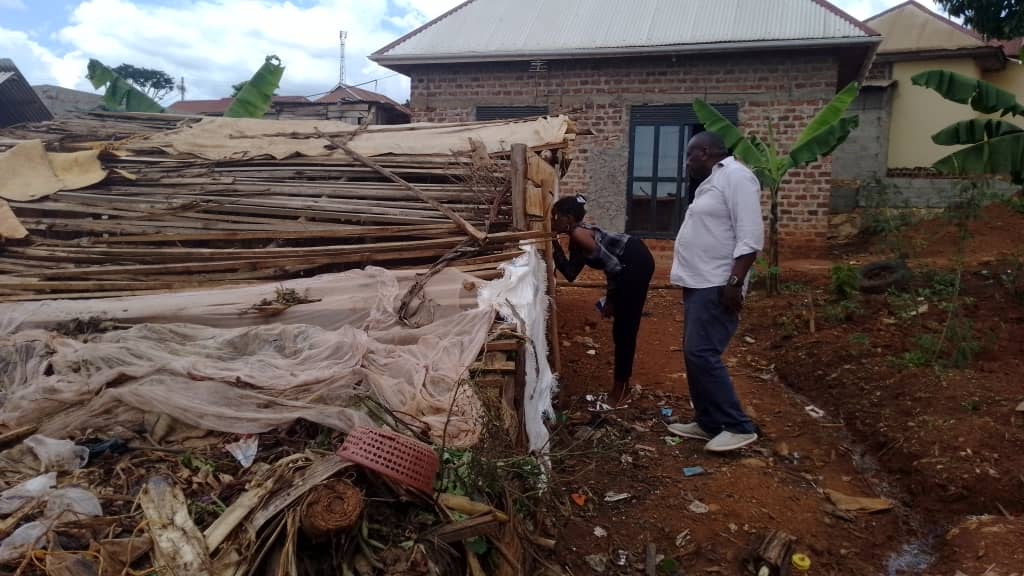By Prossy Orishaba
Nestled in the heart of Nankuwadde, a revolutionary farm is redefining the concept of waste management. Mr Kaburahoona Charity’s farm is a shining example of innovation and sustainability, where waste is transformed into valuable resources. The farm is situated on approximately an acre of land which had served as a dumping site for 15 years so was rather a wasteland before he owned it.
One of the things that attracted Kaburahoona to own this place was its geographical location- it is in a valley that drew his attention because of the presence of fresh air and the chill. This farm is a true definition of managing land as a resource because there are quite a number of activities that are taking place on this piece of land which include poultry farming, piggery farming, crop growing, brick making, sand mining and fish farming and all these activities depend highly on waste for their survival. Every bit of this land is utilized to its fullest. It employs about 10 workers.
The farm brings in 5-7 million monthly and his goal is to make 10 million per month in the near future. During my recent visit, I witnessed firsthand the impact of this groundbreaking approach.
Kaburahoona Charity & Farming Initiatives
Mr Kaburahoona Charity is not new in this farming, he has done urban farming before back at his ancestral home in Kabale district and was inspired by Mr James Mulwana after visiting him and seeing his projects and also Mr. James Mulwana returned a visit to Mr. Kaburahoona Charity and saw his project of tomatoes that he had started small with 250 tomato trees and later increased to bananas and other crops where the World Bank picked interest in his projects and paid him a visit in his home in Kabale.
He likes socializing with people in the community, sharing with them his resources, creating employment like skilling the youth and creating solutions to society’s problems. He is a great inspiration to many youths to work hard for their future through agriculture and entrepreneurship.
The Farm’s Innovative Approach:
Mr. Kaburahoona Charity’s farm minimizes waste in the community and also contributes to environmental conservation and sustainability in a number of ways through different projects.
- Poultry projects
The Parish Development Model initiative research: This is a project he started to make research on whether the presidential initiative of giving PDM funds to Ugandans is actually feasible and effective. So, he invested in an equal amount given out to citizens and chose a poultry project it being one of those examples of projects that are talked about. He has two breeds of these birds that is the exotic breed and the local breed that are now one month and one week old and basically these ones feed on mash not waste to yield results. This research is still in progress so has therefore not yielded much results.
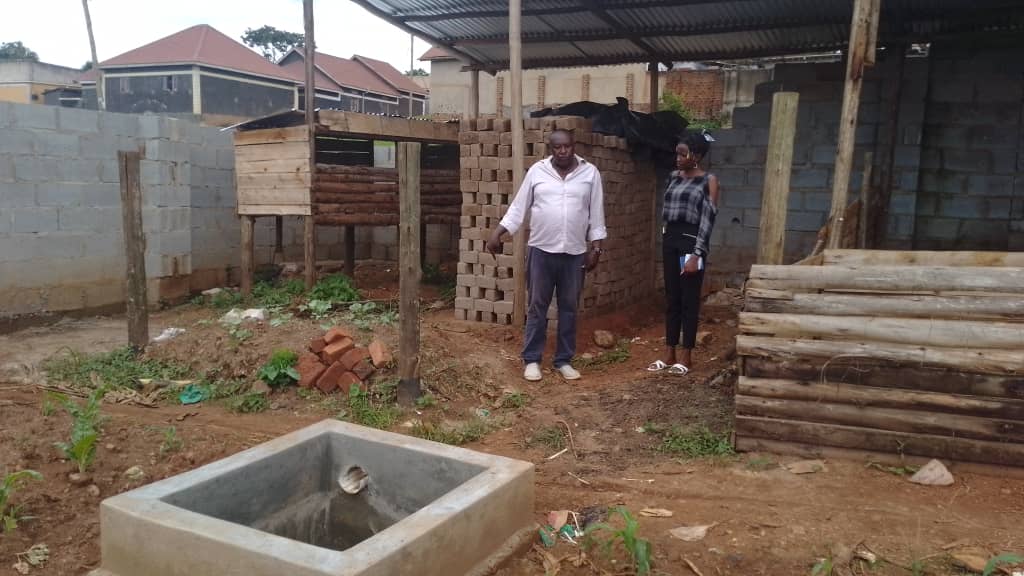
The waste minimization poultry project:
This project utilizes poultry (local breed mainly) to sort out inorganic waste from organic by feeding on organic waste and leaving the inorganic waste. The farm collects organic waste from local sources like households like peelings and leftover foods and landfills like Kiteezi landfill, which is then fed to the poultry. This method therefore minimizes waste thus conserving the environment and also accumulates savings( approximately 600000 UGX per month) due to reduced expenditure on poultry feeds and reduced costs on waste disposal and collection. It is also a source of income from sales made from the birds and eggs.
- Piggery project.
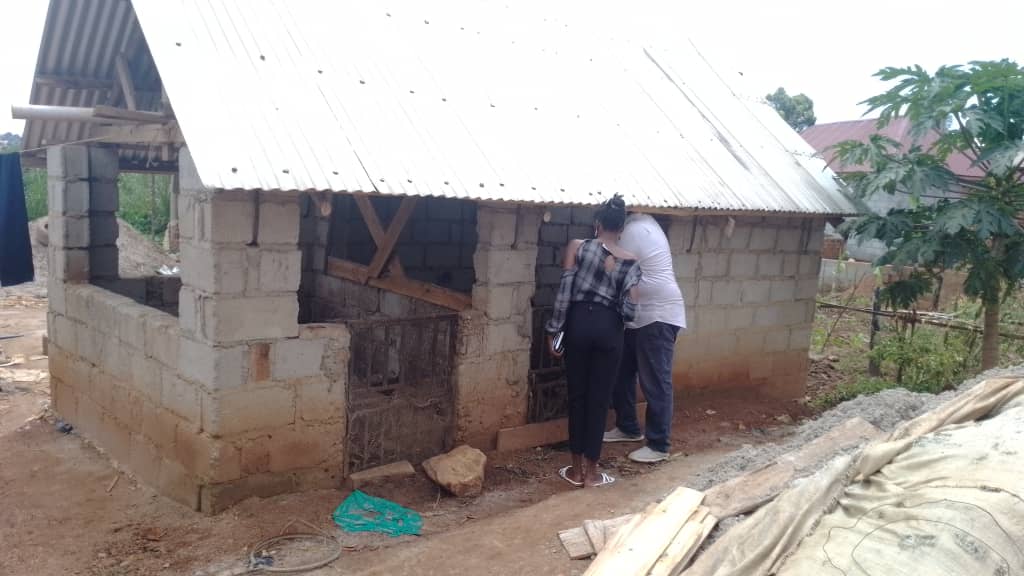
This project minimizes waste through use organic waste as feeds for the pigs. This piggery project entirely depends on the waste collected from households like peelings and leftover foods for feeds showcasing a unique integration of agriculture and environmental conservation. He states that this method has saved him a lot of money that he would be spending on feeds and waste disposal and collection. It has also minimized waste in the community and also created a source of income after making sales from pigs.
- Crop growing project
This project has various crops like beans, maize, sugar canes, sweet potatoes, bananas, egg plants, cassava, ginger and vegetables like spinach, collard greens and tomatoes. This project uses organic waste as a form of manure in the crop gardens after placing it in the open to let out its gases and then mixes it with the top soil to allow further decomposition thus increasing the nutrients of the soil and making it more fertile. This process not only reduces waste disposal issues but also produces nutrient-rich manure, used as fertilizer. This in turn increases crop yields whereby he is a daily supplier of the community with vegetables and sugar canes which are normally in season thus contributing to daily incomes. The vegetables yield 100000UGX on a daily during their season.
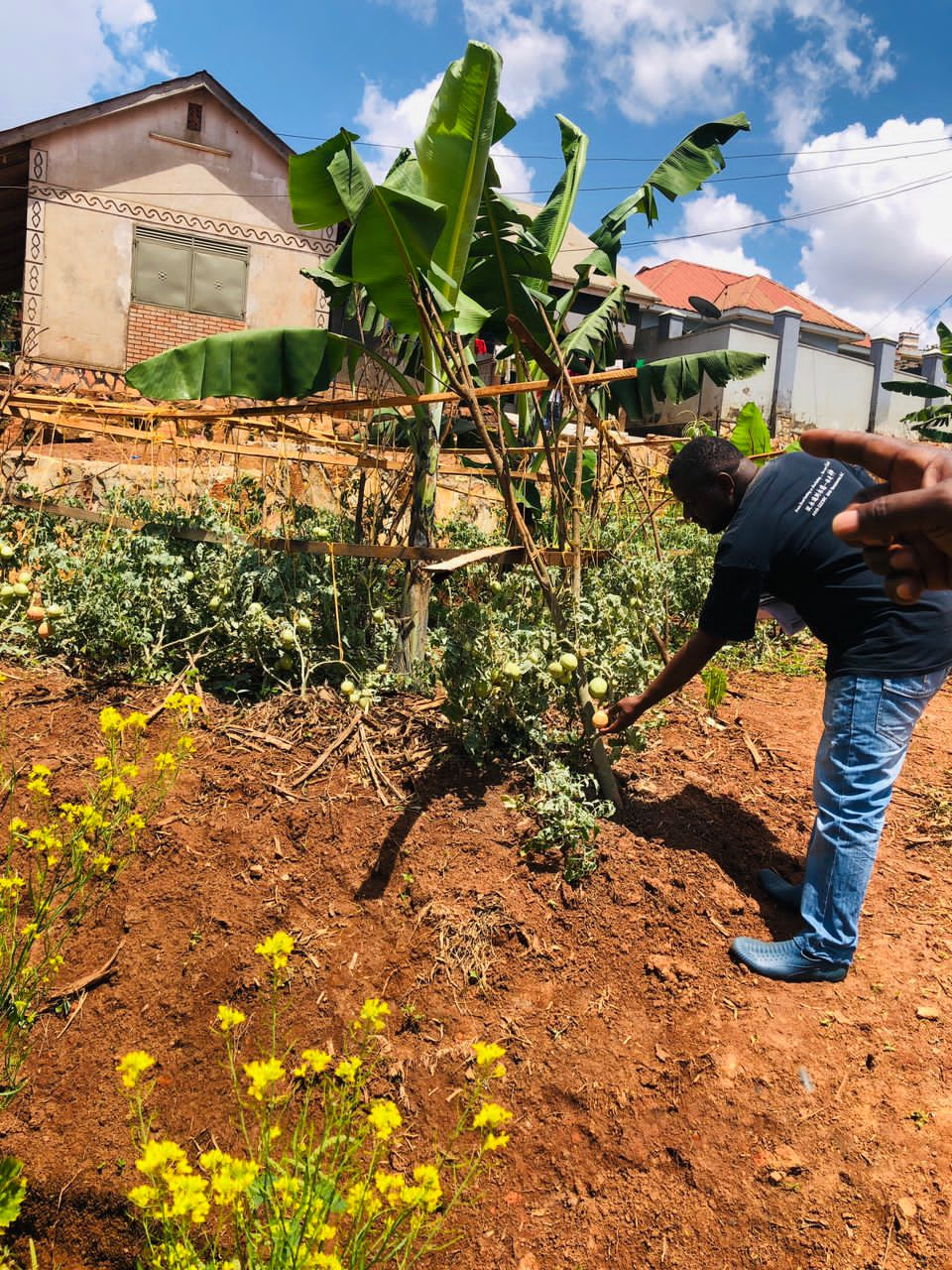
- Brick-making project.
This project came as an idea for utilizing land as a resource and reducing the volumes of soil as a result of dumping waste for a good number of years causing it to raise more than usual. To prevent landslides and waste slides, brick-making came as a solution. The deeper soil layers are the ones that are used to make the bricks then the depression that is caused is backfilled with waste and later covered with a layer of soil to prevent air pollution due to waste smells. This eases quick decomposition and soil formation. Each worker who makes 1000 bricks per day is paid 100UGX per brick he makes. Then each brick is sold at 250 UGX after going through processing. This project contributes highly on the farm’s income.
- Fish farming project.
This is still a young project majorly dealing with the rearing of mud fish in a small fish pond on the land. There is dumping that is done on one side of the pond to create a shade for acting as a breeding place for the fish. The mudfish feed on waste that is dumped in the fish pond. Drainage channels are dug to drain out liquids from the dumped waste on the land and some of the channels connect to the fish pond thus bringing nutritious liquids to the pond. It has not yet started contributing to daily incomes.
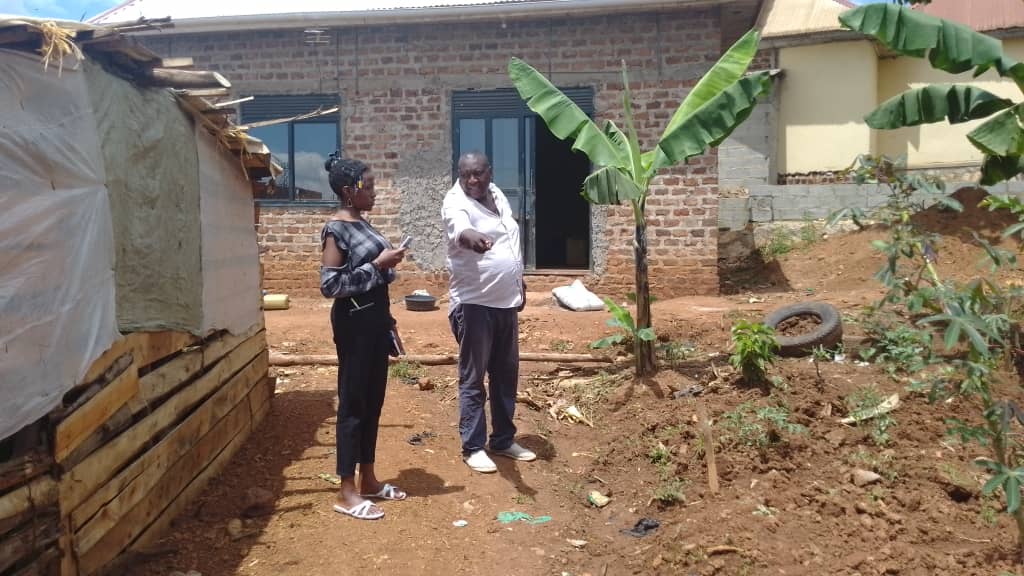
- Sand mining project.
This project was initiated by the fact that the land is richly blessed with sand as one of the minerals that is being mined and utilized. It’s one of the projects contributing to the farm incomes. A trip of sand goes for 140000UGX and an average of 4 trips is made weekly.
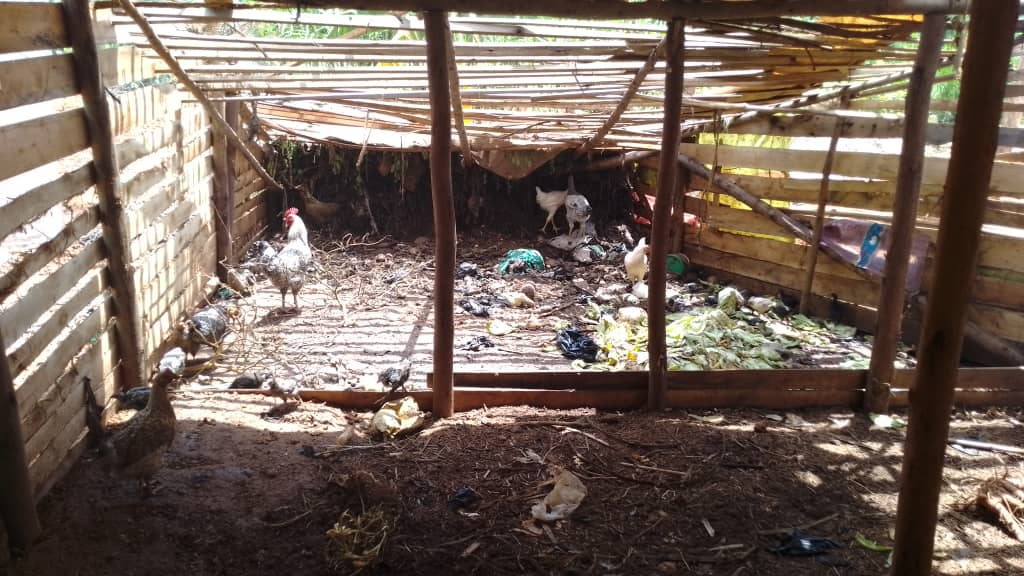
Benefits and Impact:
- Waste Sorting and Reduction: Poultry-assisted sorting whereby poultry will naturally sort and process organic waste, leaving behind inorganic materials (e.g., plastics, metals) and non-digestible materials (e.g., bones, shells)
- Waste Reduction: Projects like poultry farming, piggery, crop growing, fish farming and brick making (during the waste-filling process) reduce waste volumes through minimizing its disposal.
- Community Engagement and Education: The farm actively engages the local community by providing education on sustainable practices. This helps raise awareness about waste management and encourages community participation in environmental conservation efforts.
- Resource Efficiency: By utilizing waste as a resource, the farm demonstrates a circular economy model where waste is not merely discarded but transformed into valuable products. This approach minimizes resource depletion and promotes sustainability.
- Biodiversity Promotion: The diverse activities on the farm, including poultry, piggery, and crop growing, contribute to biodiversity. This diversity can enhance ecosystem resilience and improve soil health, which is crucial for sustainable agriculture.
- Reduction of Landfill Pressure: By processing organic waste on-site, the farm reduces the amount of waste sent to landfills. This alleviates pressure on local waste management systems and contributes to a cleaner environment.
- Improved Soil Health: The use of organic waste as fertilizer enhances soil fertility, leading to better crop yields. Healthier soil supports more robust plant growth and can reduce the need for chemical fertilizers, which can be harmful to the environment.
- Economic Diversification: The various projects on the farm provide multiple income streams, reducing reliance on a single source of income. This diversification can enhance financial stability for the farm owner and employees.
- Innovation in Waste Management: The farm serves as a model for innovative waste management solutions that can be replicated in other regions. Its success can inspire similar initiatives, promoting broader adoption of sustainable practices.
- Resilience Against Climate Change: By promoting sustainable agriculture and waste management, the farm contributes to climate resilience. Practices that enhance soil health and reduce waste can help communities adapt to changing environmental conditions.
- Waste Reduction: The farm has significantly reduced organic waste in the local community.
- Job Creation: Kaburahoona Charity’s farm provides employment opportunities for local youth.
- Sustainable Agriculture: The eco-friendly fertilizer promotes healthy crops, supporting local food security.
- Environmental Conservation: The farm’s approach minimizes pollution and promotes a cleaner environment.
- Economic value: He saves thousands of moneys that he should have spent on poultry feeds and crop fertilizers since the poultry feed on waste and organic waste is applied in his crop gardens.
- Earnings from allowance of waste dumping: He is paid a small allowance to use his land as a dumping site.
- Protein-Rich Feed: Poultry produce eggs and meat, providing protein-rich feed
- Economic Benefits: Reduced waste disposal costs, increased revenue from fertilizer and poultry products
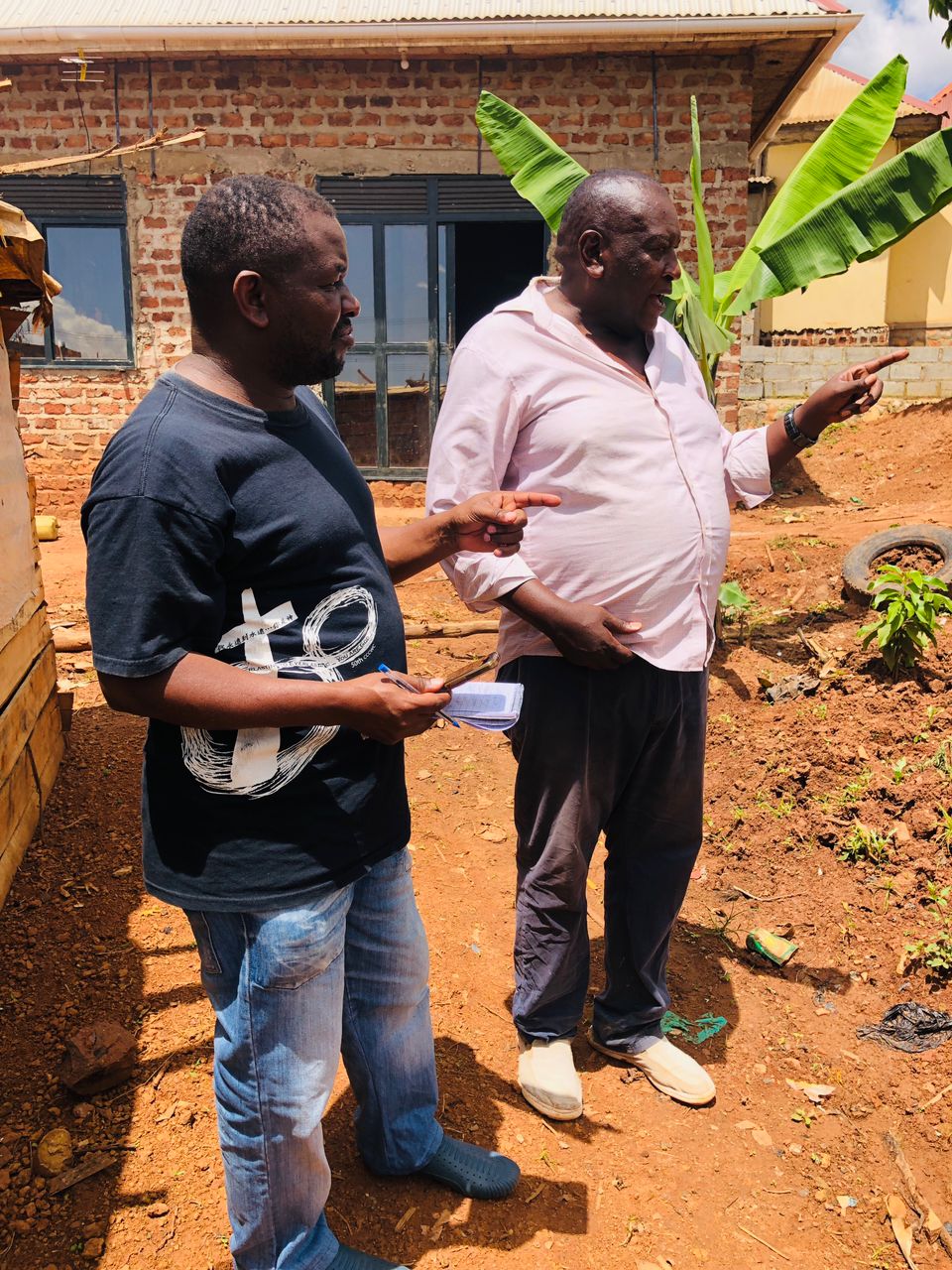
Why Others Should Borrow a Leaf from This Farm
- Scalability: The methods employed at Mr. Kaburahoona Charity’s farm can be scaled and adapted to different contexts, making them applicable in various regions facing waste management challenges.
- Economic Viability: The farm demonstrates that sustainable practices can be economically beneficial. By reducing costs associated with waste disposal and feed, other farmers can improve their profitability.
- Environmental Stewardship: Adopting similar practices can lead to significant environmental benefits, including reduced pollution and enhanced biodiversity, which are essential for sustainable development.
- Community Development: Initiatives like those at Mr. Kaburahoona Charity’s farm can foster community development by creating jobs and promoting local food security, ultimately improving the quality of life for residents.
Challenges and Future Plans:
While Mr. Kaburahoona Charity’s farm has achieved remarkable success, scaling up production and increasing public awareness remain key challenges. The farm owner plans to expand operations, partnering with local organizations to educate the community about the benefits of sustainable waste management. Given more funds Mr. Kaburahona plans to expand his farm to include an Eco- lodge facility or into an Eco- resort.
Mr. Kaburahoona Charity’s innovative farm in Nankuwadde not only addresses waste management effectively but also serves as a beacon of sustainability and community empowerment. Its practices can inspire others to rethink waste and adopt more sustainable agricultural methods. His dedication to environmental conservation and community development is inspiring, and his approach has the potential to transform the way we think about waste disposal.
Kaburahona is also a government advisor on the economy, politics and social development.
Additional reporting by Prossy Orishaba
Send us your story or opinion on: dailyexpressug@gmail.com. You can also follow Daily Express on WhatsApp for all the latest news and updates.

